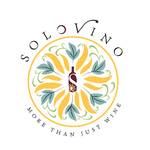Community Projects
SOLOVINO x JONATHAN JACKSON FOUNDATION - INTRODUCTION
Solovino Ltd, a leading wine distributor in Kenya has engaged with Jonathan Jackson Foundation (JJF) in a Corporate Social Investment initiative with JJF to support youths within Nairobi’s informal settlements to build eco-friendly sustainable businesses. Through the brand; WILD HOUSE, Solovino seeks to allocate a % of their profits towards the Jenga Bizna Mtaani Program at JJF.
Jonathan Jackson Foundation (JJF) is a registered charity organisation based in Nairobi, Kenya. JJF’s mandate includes economic empowerment where JJF has designed Jenga Bizna Mtaani program that helps youth group social enterprises within Nairobi’s informal settlements to grow by providing seed funding and donations to build businesses, business development training with the goal of ensuring sustainable job and employment creation.
BACKGROUND – PROJECT RATIONALE
- YOUTH UNEMPLOYMENT
Kenya’s economy is driven by agriculture as one of the main income earning activities by the citizens. Agriculture presents a huge opportunity for employment creation to absorb the untapped youth labour and improve livelihoods, thus directly contributing 26% of the GDP and an additional 27% of GDP indirectly through linkages with other sectors. The sector employs more than 40 per cent of the total population and more than 70 per cent of Kenya's rural population.[1]
Youth account for 35.4% of Kenya’s population (World Bank 2014), with 1,000,000 entering the labour market annually (Kenya Country Report on Youth Employment, 2014). They offer a dynamic work force that is innovative; have a high uptake of technological know-how and the ability to take on significant levels of risk. According to the United Nations Development Programme (UNDP) study, 80% of the currently 2.3 million unemployed are young people aged between 15 - 34 years (World Bank, 2014). The agriculture sector presents a huge opportunity for the creation of employment to absorb the youth and ensure achievement of food security for future generations.[2]
- AGRIBUSINESS – URBAN AGRICULTURE
[1] Kenyan youth urged to embrace agribusiness (the-star.co.ke)
[2] Kenya Youth Agribusiness Strategy 2018-2022
According to the Kenya National Bureau of Statistics, the unemployment rate is currently at 7.2%. It is clear to see that Kenya’s future rests in the hands of the youth. Therefore, it becomes increasingly critical to empower them and inspire them to take action to secure a sustainable future. JJF believes that one way of doing this is engaging more youth in the agricultural sector.[1]
The evolution from agriculture to agribusiness has brought with it numerous benefits. The positives include more food security, cheaper prices for consumers and the ripple effect of youth employment within the communities. Financing agribusiness can increase the added value of raw materials, strengthening local rural economies, food security and nutrition, and improving the quality of life in many homes at risk of exclusion and vulnerability in engagement with social vices such as crime, prostitution and drugs & substances abuse.
- WATER INFRASTRUCTURE
Kenya's rapidly growing capital city is facing severe problems with the supply and quality of its water supply, driving people to buy it from unsafe and potentially contaminated sources. There is currently about a 25% shortfall in supply to Nairobi homes, according to the city's water provider, NCWSC. There are also significant issues over the quality of the piped water, particularly in the city's informal settlements. Water from drains or sewage can seep into the supply due to the deterioration of pipes and much of it is undrinkable, according to the World Health Organization (WHO).[1]
World Health Organisation (WHO) in its 2020 Domestic Water Quantity Service Level and Health edition recommended that every person should use at least 1,500 litres of water every month, poor Nairobi residents consume almost half of that every month. The way people access water differs according to income, too. People in high- and middle-income areas tend to have piped connections
World Health Organisation (WHO) in its 2020 Domestic Water Quantity Service Level and Health edition recommended that every person should use at least 1,500 litres of water every month, poor Nairobi residents consume almost half of that every month. The way people access water differs according to income, too. People in high- and middle-income areas tend to have piped connections in their homes. Those in middle to low and low-income areas were more often getting water from communal taps or water kiosks (water vendors who sell water purchased from the utility company.)
[1] Nairobi water: What's behind severe shortages? - BBC News
- JENGA BIZNA MTAANI – AGRIBUSINESS AND WATER SUPPLY
In October 2019, JJF initiated the the first pilot project of urban agriculture with Congo Youth Group in Kawangware, Nairobi. Congo Youth Group is mainly formed by youth members who have previously been in conflict with the law and have served time in the correctional facilities and prison. Through engaging these youths through economic empowerment and psychosocial support, they become well integrated back into the society and become reformed youths who no longer engage in crime as a means of making income. The group was given access to public land by local administration officials where they now utilize available land do most of their farming activities. They grow a variety of crops such as maize, Sukuma wiki, eggplant and some indigenous vegetables.
Water is not a challenge as they have access to the municipal water and even store it in a 10,000-litre tank, which they use to irrigate their crops. The group which started with two rabbits had by March 2020, a total of 10 rabbits and five chicken. The Covid19 Pandemic affected this agri-business due to the public health directives of stay-at-home and social distancing that saw this budding business close down operations. Now, with JJF as a community partner, Congo Youth are seeking to get the support of planning and using the land for agribusiness purposes. The group needs to undergo an urban agriculture training focusing on better and innovative farming techniques to maximize productivity per unit space. The training needs include; introduction to urban agriculture, horticulture (vegetables and herbs), organic pesticides/ manure formulation, and poultry farming.
In addition to the above-mentioned interventions, JJF and partners will continue to support the capacity of the youths through various project visits aimed at enhancing their performance as well as introducing new models, mechanisms, and approaches to a reformed life.
- WATER SUPPLY
One of their main challenges is water insecurity in Nairobi informal settlement. To date, JJF has supported three groups with the 10,000-litre capacity water tank towards establishment of community water-vending businesses. These include; Boom Family Youth Group in Kawangware Coast Area, Vijana Tujijenge Youth Group in Mathare North Area and Warembo Unique in
Kawangware Muslim Area. Boom Family comprises of youths who have been in conflict with the law,
Vijana Tujijenge has members who have had drug and substance abuse challenges and Warembo Unique Group has members who are reformed commercial sex workers. JJF works with youth groups comprising of members who are not in employment, education or training (NEET) thus who are more vulnerable to societal ills. Economic empowerment is the most sustainable solution.
- IMPACT OF THE JENGA BIZNA MTAANI SOCIAL INTIATIVE
- Youth Employment Creation thus providing a means to earn income and out their own food on the table.
- Empowered youths thus lowering their chances of retrogressing to the previous deviant acts.
- Technical skills learnt by the youths for the period of sentence are harnessed for the benefit of the individual’s group members and the community at large.

JJF Monitoring Team during a site visit to Mwengenye Youth Group Farm in Kayole

Vertical Farming demonstrated at a Youth Group Farm in Kayole

Management Team at a Monitoring & Evaluation Site Visit in Kawangware - Warembo Unique Group
Are you over 18?
You must be 18 years of age or older to enter this site. Please verify your age to enter.
Access forbidden
Your access is restricted because of your age.

